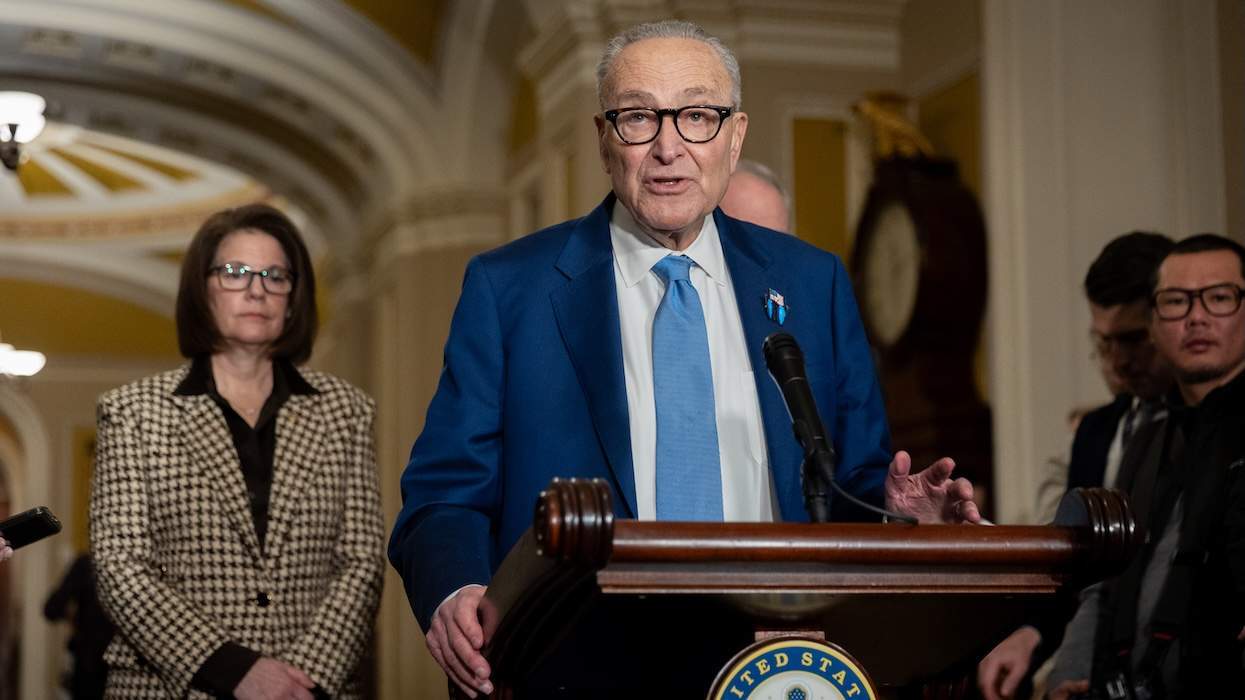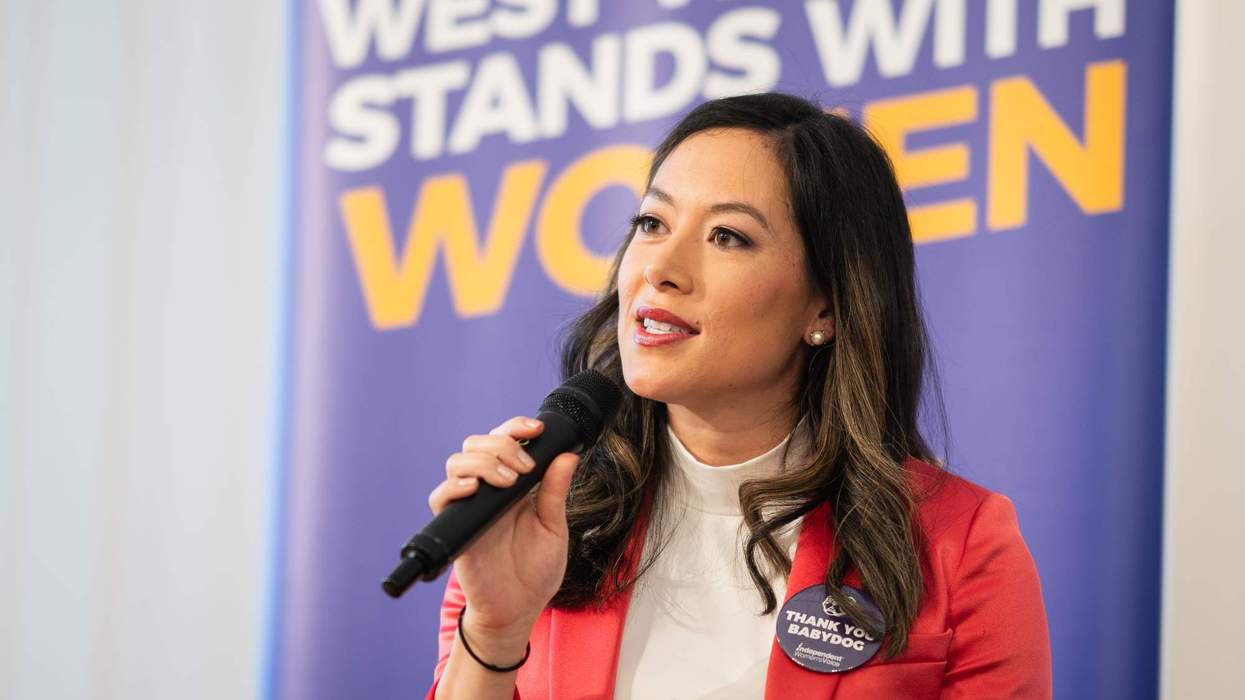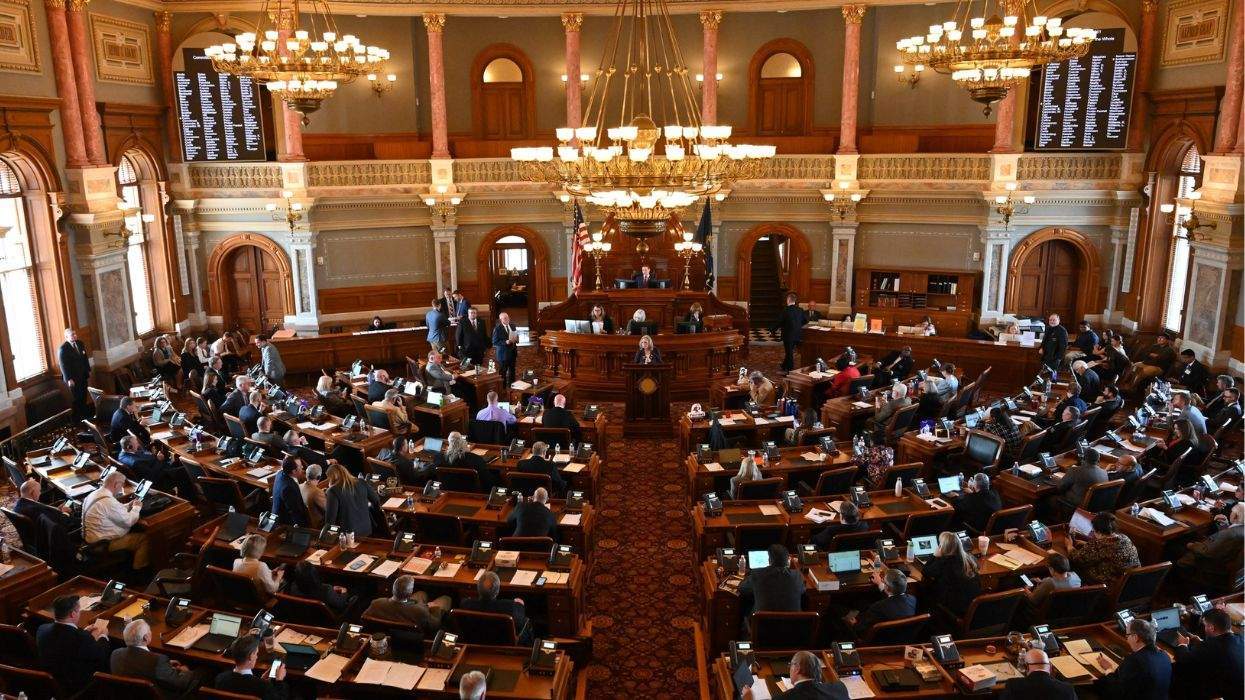Discussions around repealing a portion of the Defense of Marriage Act that prohibits the federal government from recognizing same-sex marriages have heated up in the wake of recent legal challenges filed and the addition of two new states legalizing same-sex marriage.
Legislative aides familiar with the discussions say a handful of congressional leaders have been hashing out the details of the legislation, which would accomplish two goals: repeal section 3 of DOMA as it relates to the federal government's ability to confer some 1,100 federal benefits on same-sex partners; and provide a way for same-sex couples living in states that do not allow them to marry legally to access the same federal benefits afforded to heterosexual spouses.
The most immediate benefits of passing such a bill would go to legally married gay couples -- those who have married or will marry in Connecticut or Massachusetts, those who married in California while it was legal (pending the state supreme court decision over the validity of those marriages), and those soon to marry in Iowa and Vermont. Same-sex couples in New York, which recognizes legal marriages performed outside of the state, would also be among the first beneficiaries.
But Christopher Anders, senior legislative counsel at the American Civil Liberties Union, said legislators are also intent on making federal benefits available to same-sex couples living outside those six states. "People are coalescing around the idea of a 50-state solution by recognizing unions that are recognized in at least one state," he said. "There's a growing consensus around that."
By all accounts, the bill will not disrupt section 2 of DOMA, which gives individual states the ability to determine what type of unions they deem legal. "It still protects federalism -- states are still able to make their own decision about what state benefits to offer," Anders added.
According to sources who spoke on the condition of anonymity, legislators involved in the planning include senators Christopher Dodd, Russ Feingold, and Chuck Schumer, and representatives Tammy Baldwin, Barney Frank, Jerrold Nadler, and Jared Polis.
Legislators declined to discuss specifics due to the fact that they are trying to reconcile different approaches in order to introduce matching bills in the House and the Senate.
"With the landscape changing so quickly, we want to make sure congressional leaders, advocates, and litigators are all in the same place," said Amy Rutkin, Representative Nadler's chief of staff.
The basic question surrounding the bill is which same-sex unions to recognize and how to make those unions portable in a way that will allow the federal government to provide benefits to gay partners regardless of whether they live in Alabama or Massachusetts.
According to those familiar with the discussions, some have advocated for only recognizing marriages while others have shown an interest in including civil unions and strong domestic partnerships too.
"The idea is to recognize a relationship or marriage that is recognized by a state," Anders explained. So if a couple is legally recognized in any state, he added, "you would be entitled to the federal benefits and protections and liabilities of marriage."
But the Human Rights Campaign's Joe Solmonese said he is less concerned about the exact form the legislation takes at the moment than he is in getting "something on the burner."
"I think the House and Senate version wouldn't have to be one in the same, there can be differences," he said. "But once you get legislation introduced in both, you've got the educational vehicle and the organizing principle for the community to really get to work on."
Sources declined to discuss the exact timing of when such a bill might be introduced, but they generally agreed it would be before the end of the year and probably within the next several months.
While President Obama supports full repeal of DOMA, Solmonese said it was difficult to gauge whether this legislation would be prioritized by the White House because the Administration has not provided such information to the HRC.
"We have had weekly conversations with the White House about the agenda for our community, but we haven't gotten the priority list from the White House," he said.
Anders explained that the two key disparate groups legislators are keeping in mind are those couples who are the most mobile and those who are the least. For instance, they want to cover couples who live in Massachusetts or Iowa and marry but then choose to move to another state for a job or to care for a family member or to retire.
"But there are also lots of people who are living in the state they were born in," Anders said, "and it doesn't seem that people should be locked out of federal protections simply because they can't move and may not have the resources or mobility to do so."
Another option some have suggested is creating a set of criteria, or a federal trigger, that would qualify a couple for federal benefits regardless of whether they are legally unioned in any particular state. While this would provide a way to debate federal benefits outside of the emotion surrounding marriage, Anders said the option has not been under serious consideration and was losing steam fast now that there is a greater proliferation of states extending full marriage rights to same-sex couples, which essentially makes marriage regionally accessible to more people.
The Government Accountability Office reported in 2004 that a total of 1,138 federal benefits are associated with marital status; people generally cite issues like Social Security survivor benefits, federal health benefits, and equal tax treatment as major concerns. A same-sex partner cannot, for instance, collect the Social Security payments of a deceased partner. Partners of federal employees are not eligible for inclusion on their health insurance. In terms of taxation, same-sex partners cannot file joint tax returns; insurance benefits offered to same-sex partners by employers is taxed as extra income rather than being deducted from pre-tax dollars; and while married spouses can transfer an unlimited amount of money to each other without being taxed, anyone else is limited to transfers of up to $12,000 annually.















